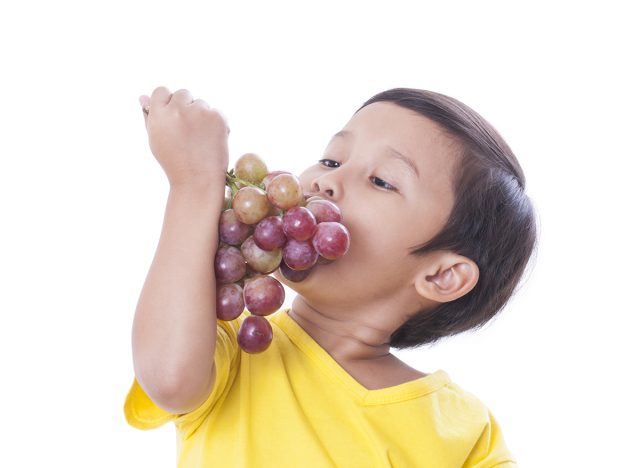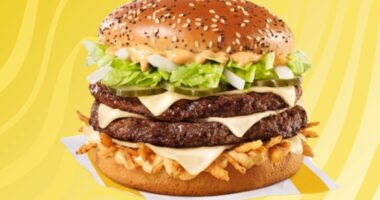When you have children, you want nothing more than to give them a healthy, happy life. As they grow up, you also want to make sure they’re properly fed with good food and nutrients. That’s because what your children eat can positively impact their overall health. In particular, certain foods can impact cognitive development– the growth of a child’s ability to think and reason.
However, just like healthy food is good for your child’s cognitive development, other foods will have the opposite effect and can potentially cause problems. In a study published in the journal, Nutrients, researchers found that the worst foods you can give your child for their cognitive development is sugary snacks. With that in mind, according to says Amy Goodson, MS, RD, CSSD, LD, author of The Sports Nutrition Playbook, it’s important to stick to healthier options. Goodson suggests that the best foods for your child’s cognitive development include whole foods, lean protein, fruits, and vegetables.
“One of the biggest challenges with children consuming large intakes of added sugar and heavily processed foods is that these are typically replacing nutrient-rich foods,” says Goodson.”For example, they eat sugary breakfast pastries instead of whole grain toast and eggs. Or, they eat processed snacks instead of fruit and veggies at snacks. They may also drink sugar-sweetened beverages instead of milk, etc. So, not only are they taking in more processed foods, but they are often also eating less nutritious foods that fuel the body and brain.
Research finds that children with high intakes of processed and sugary foods have stilted cognitive development
In the study, researchers from the University of Illinois Urbana-Champaign distributed dietary intake questionnaires to approximately 300 families/caregivers of children. Once completed, the study discovered that children between the ages of 18 months and 2 were more likely to struggle with certain fundamental aspects of function if they consumed more sugary snacks and processed foods. This included inhibition, working memory, and planning and organizing skills.
“Here’s a take-home message for parents and caregivers: The early years of life are formative for learning,” says Goodson. “Fueling children with nutrient-rich foods like whole grains, lean protein, fruit, vegetables, low-fat dairy, healthy fat, and specific foods that we know have cognitive benefits like eggs and antioxidant-rich produce are necessary to promote positive focus and energy levels that support a healthy learning environment. These foods also provide the essential nutrients needed for healthy growth and development.”
Goodson continues to state that similar to adults, the blood sugar of children is affected by what they ate or did not eat. So, if children are eating a high intake of processed carbohydrate foods, it can contribute to blood sugar spikes and drops. This can affect energy levels, mental acuity, and focus, as well as behavioral reactions to life situations and scenarios.
READ RELATED: Common virus can contribute to the development of type 2 diabetes, study suggests
When there is low blood sugar, Goodson suggests that both kids and adults feel “hangry,” a combination of hungry and angry. This can leave both adults and children acting out. Or, not being able to handle certain life stressors as well as they could if they were well-fueled. With that being said, it’s important to give your children the proper and satisfying foods to help them develop.
Takeaway


While informative, Goodson says this study was not a cause-and-effect study. Instead, it was an observation and association, which may impact results.
“Caregivers completed questionnaires and researchers attributed common food intake behaviors to common behaviors,” explains Goodson. “These types of studies typically have larger ranges of error due to not being able to assess direct cause and effect.”
Although the study cannot conclusively say that processed foods are what is causing slowed cognitive development, experts and research say that eating whole, nutrient-dense foods will certainly support all aspects of your child’s health—including their brain.
For more healthy eating news, make sure to sign up for our newsletter!
Read the original article on Eat This, Not That!
Kayla Garritano
Source:










